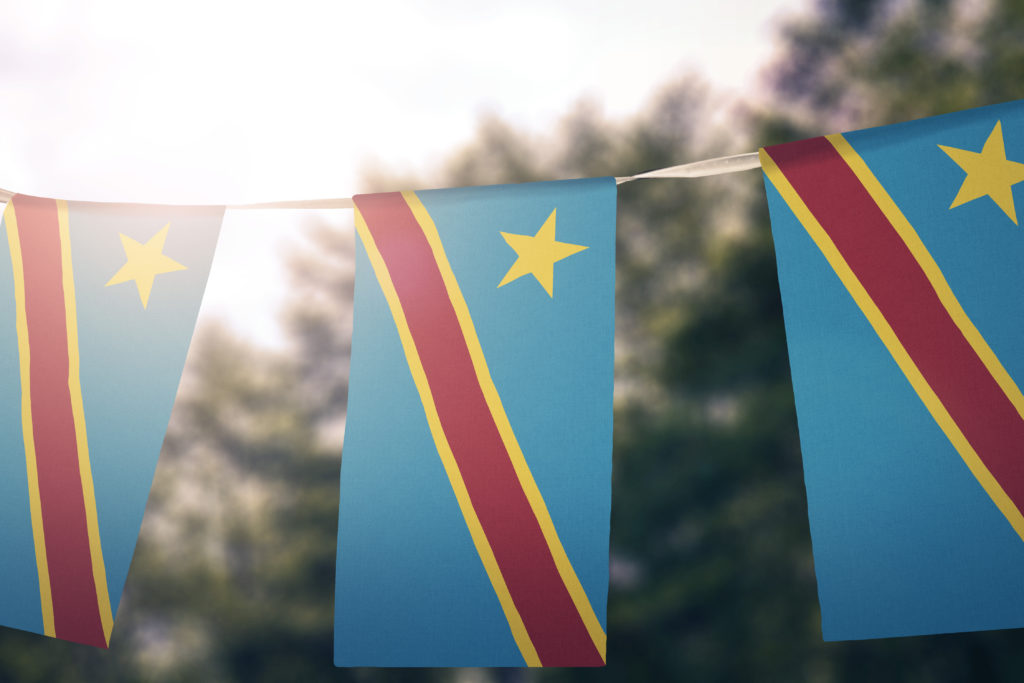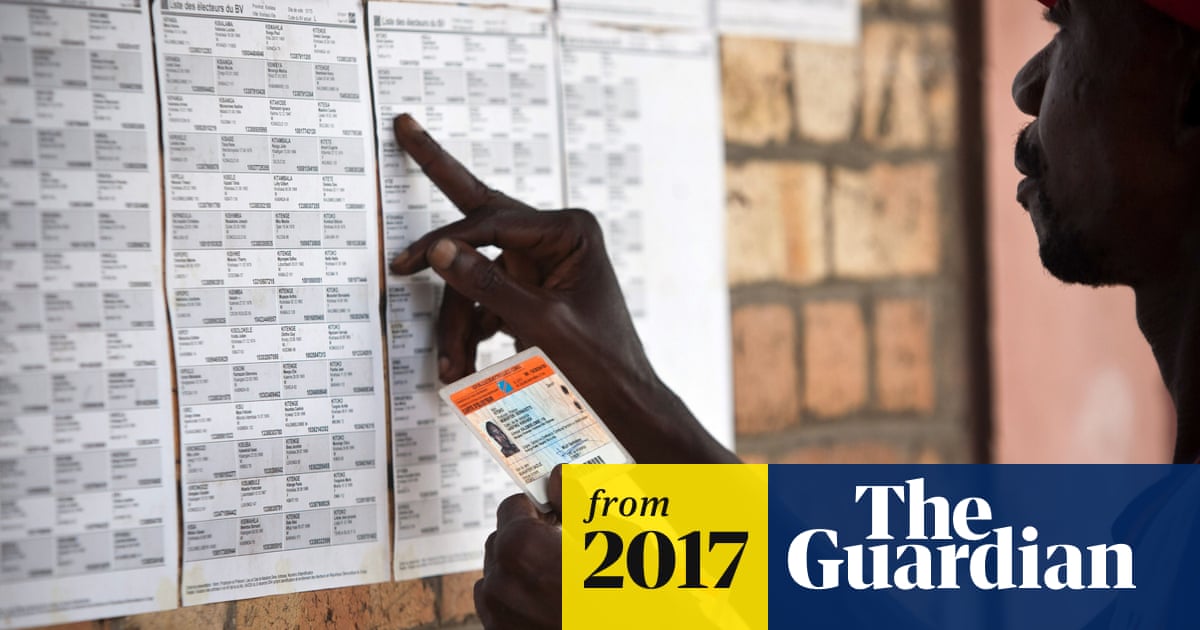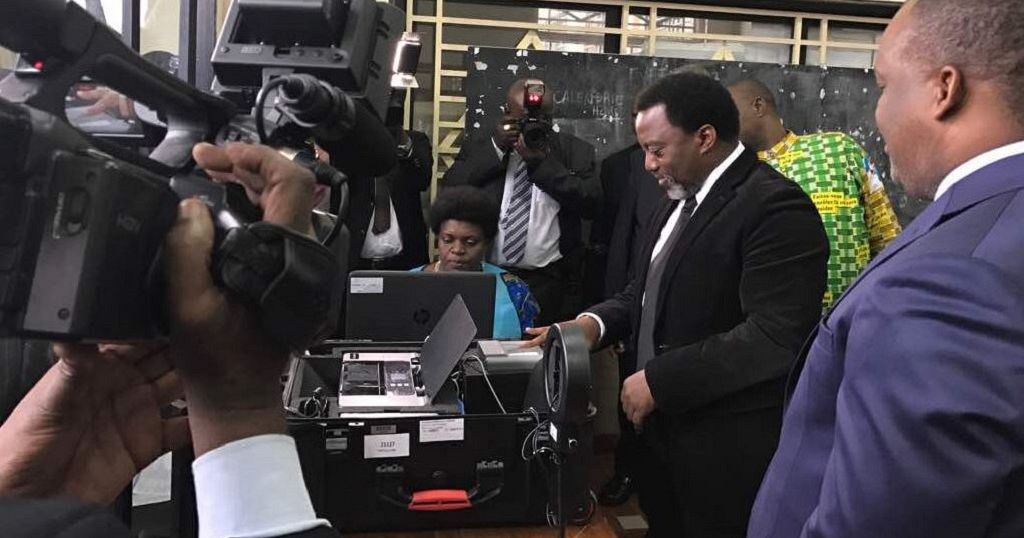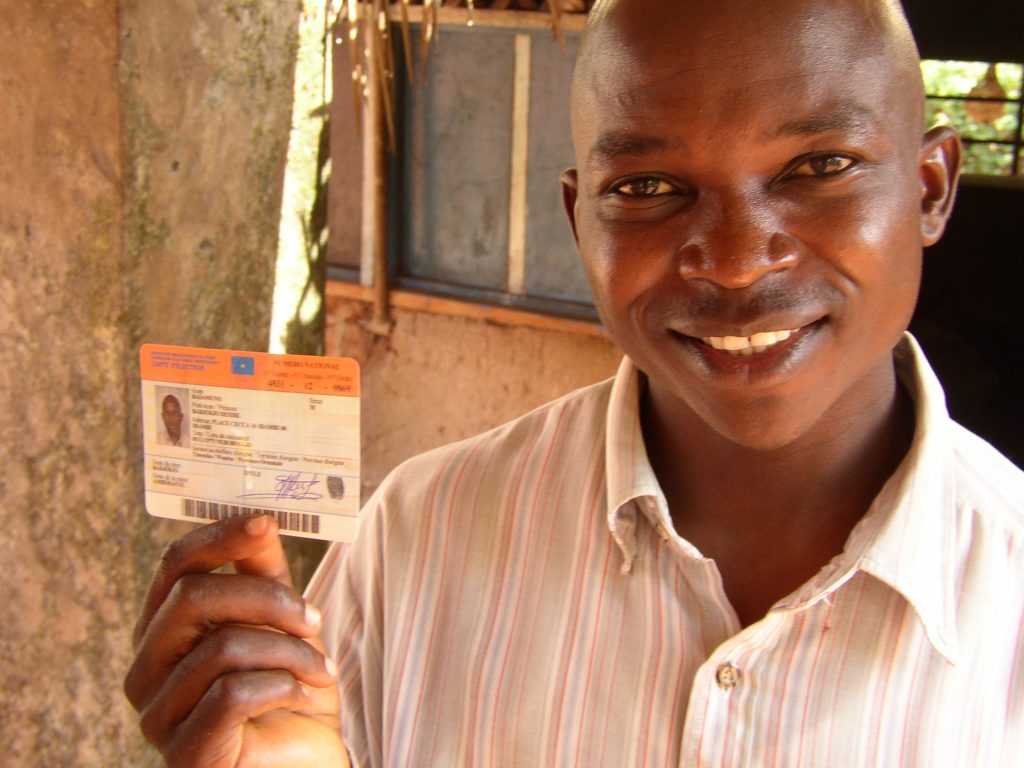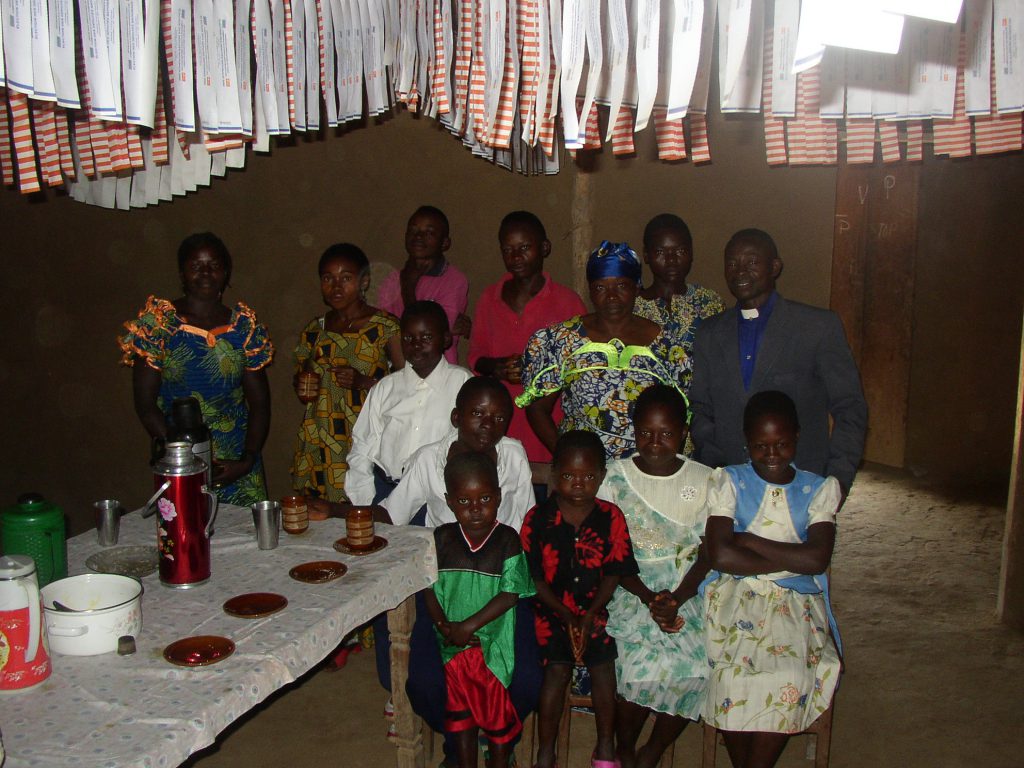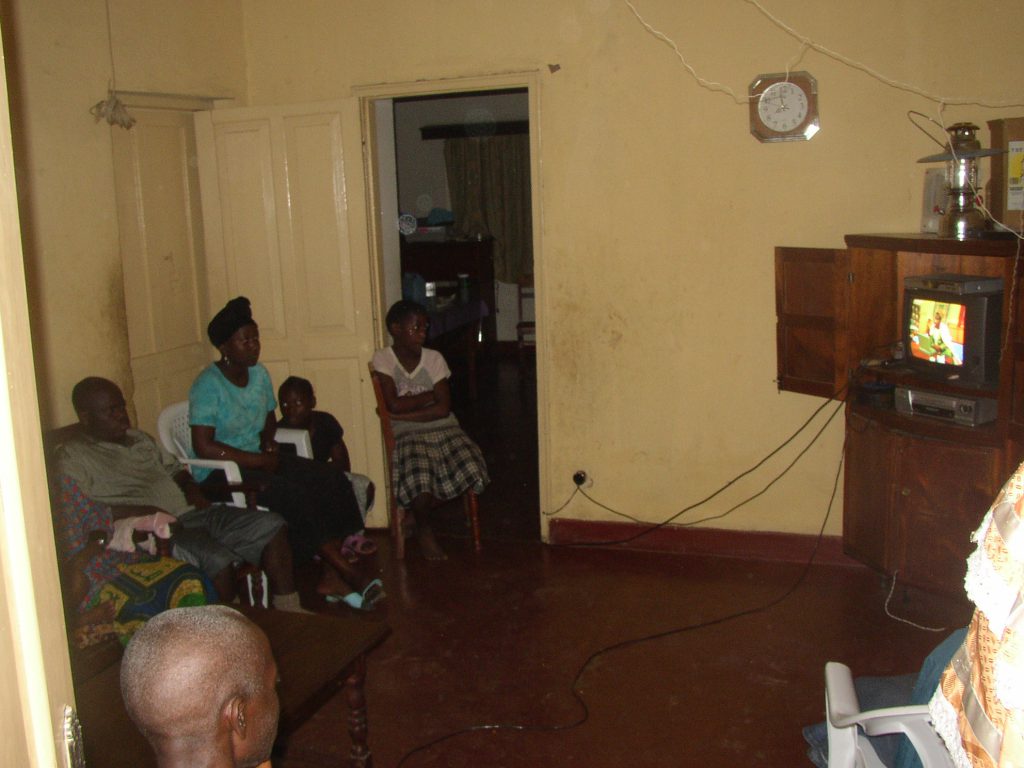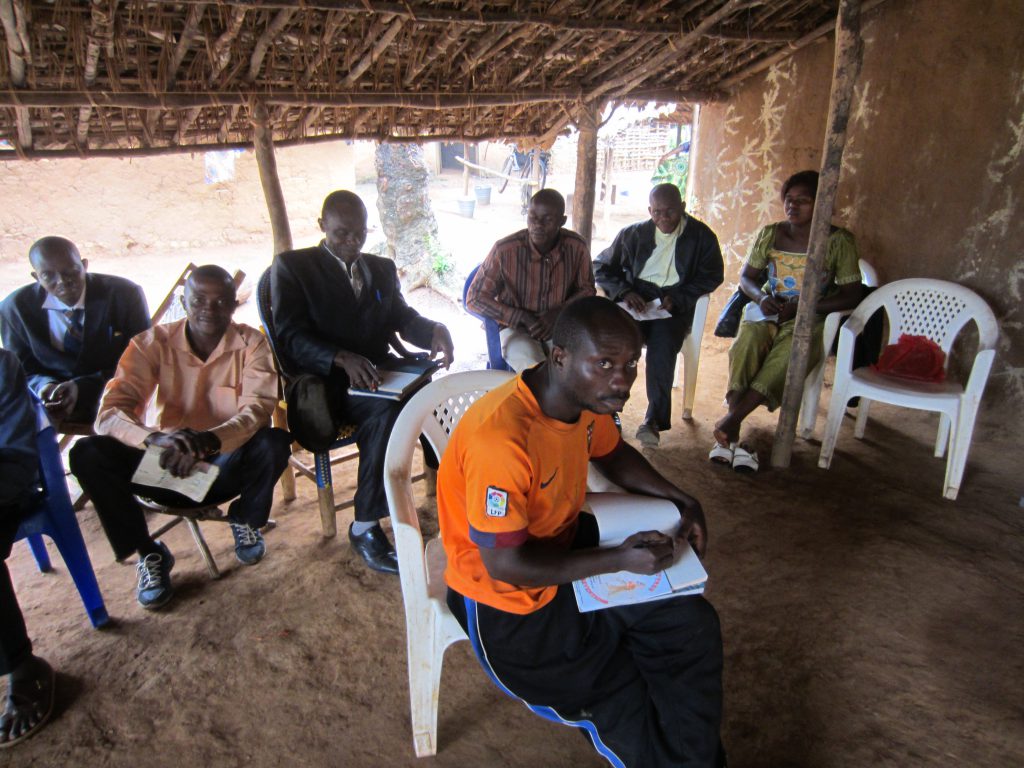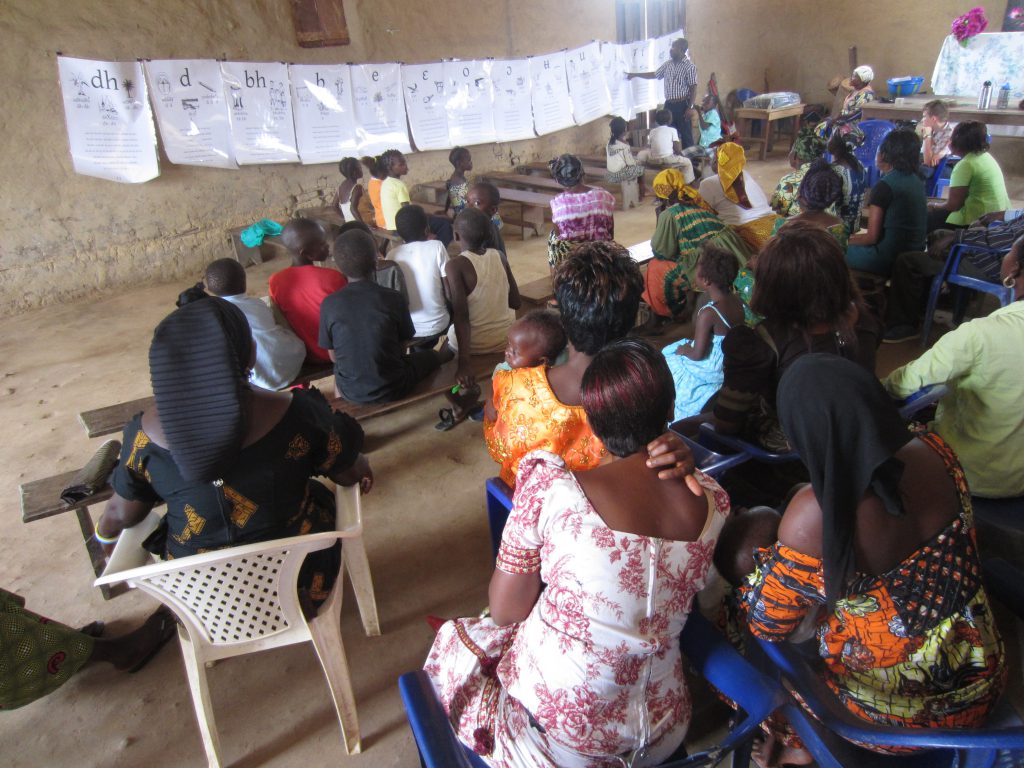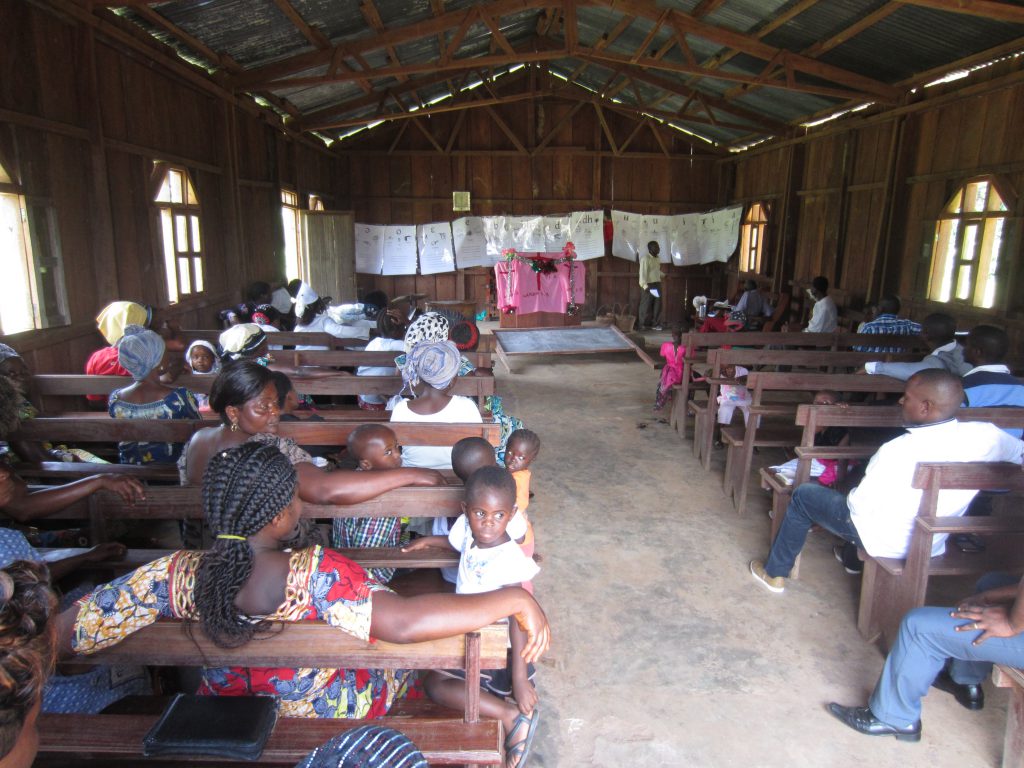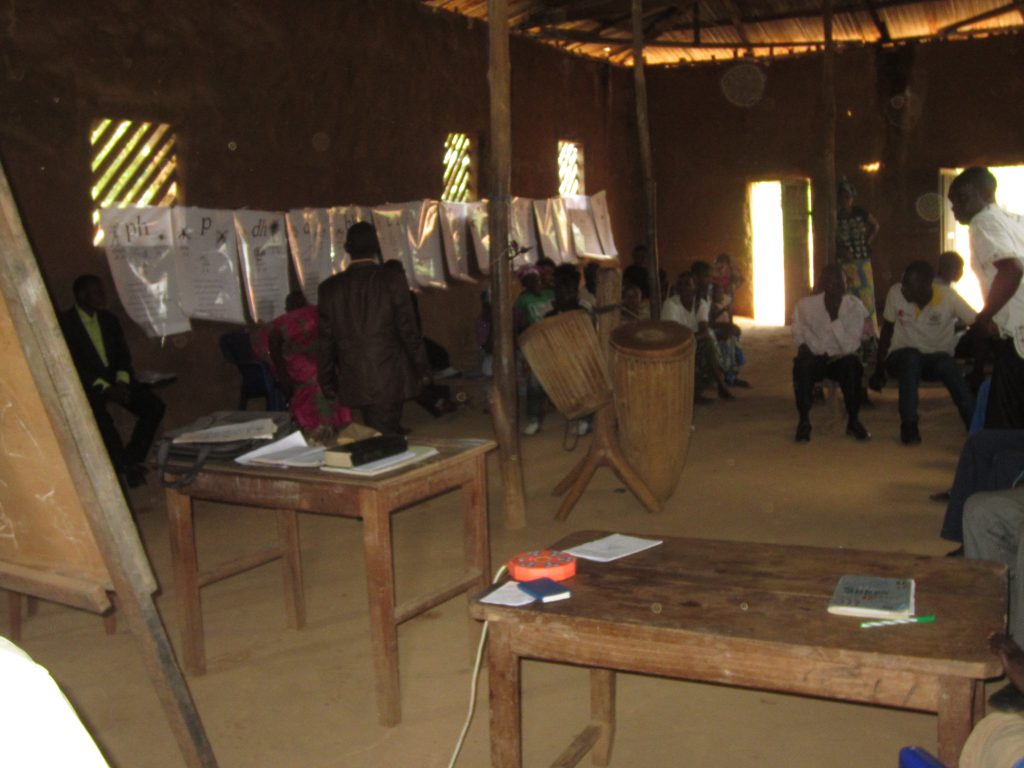Rather than waiting for some other reason to use this title, I’ll go with the end of the most recent Ebola outbreak in DR Congo:
Tag Archives: DRC
“Urgent Appeal” by African Leaders for DRC Peace
When looking up the latest on DRC elections forcast, I found the following post from yesterday on the Kofi Annan foundation’s website:
This is in the context where questions of the possibility of an election are being raised on the basis of both violence and funding:
And early last week we learned that “quickly” doesn’t necessarily mean “in the next twelve months”:
So please pray for Congo. Pray that they would have a just peace. Please pray specifically for an election soon. Pray against financial and insecurity issues, and against the objections of politicians. Pray for something that would give people some confidence that they live an a democracy, in which they are better off than if they were to fall back into war. And if it must be war, please pray that God would be merciful and that the church would grow, even in the midst of that horror.
Making and Maintaining Connections
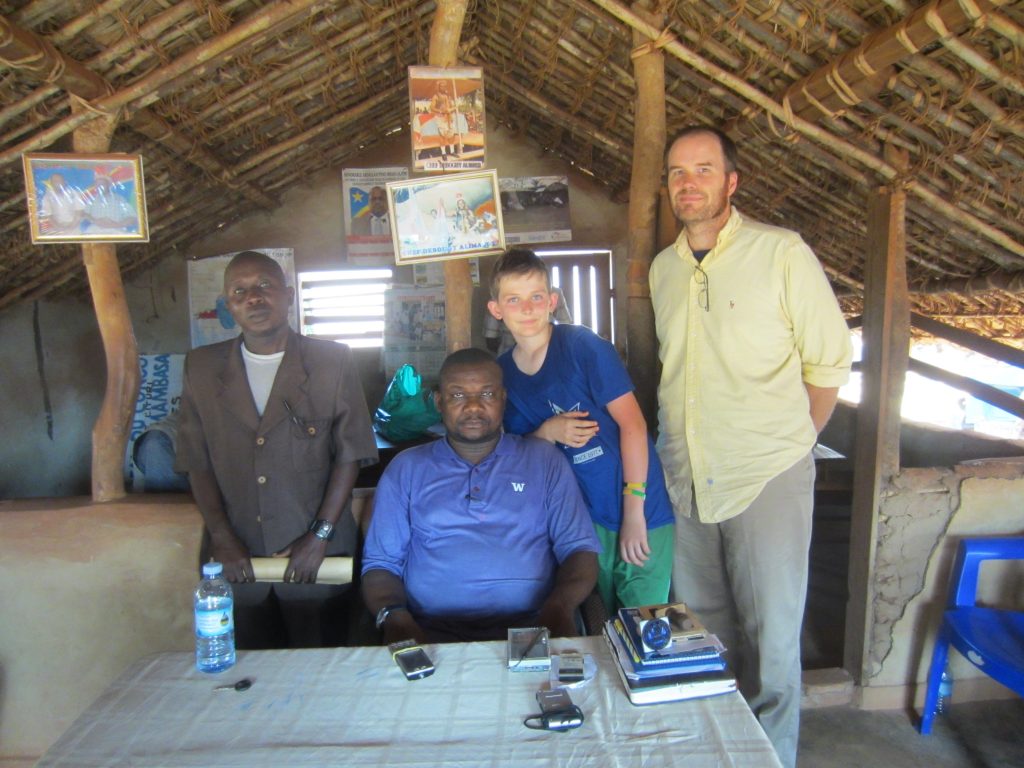
I have found myself saying a number of times over the years, “I didn’t get into missions to do ___.” Fill in the blank with supervising other people, managing money, raising money, helping people get along with one another, keep my family in working electricity and water; there are so many things this can apply to.
One thing that is more necessary than you might think in Congo is paying respect to authorities. The first time I remember doing this, I was completely at the mercy of students of mine, who were taking me to their home area to present work we had done together on their language. I was surprised at this last minute stop along the road, then surprised that it was NOT optional (we were late, but they were clear that we had no option to just pass by). But then when the guy we were supposed to see wasn’t there, and after we had done due diligence in waiting for him (in the presence of his office staff, who could tell him how long we had waited), we finally moved on. Pardon me if I admit that the whole scenario sounded like just a bunch of posturing to me. But someone once said to me, that if you only have one thing you do, and someone takes that away, what do you have left? So the guy who puts a particular stamp on a particular form has to put his stamp on your form, or you’re denying his value (and his livelihood, where money is involved).
Fast forward to more recent times, and I’m much more comfortable schmoozing with bureaucrats. Partly because I know they really do have a lot of power, even if its different than the kinds of power I’d been used to. But also because I want to confirm and establish the legitimacy of what we’re doing, and this is not only the simplest and most straightforward way to do that, but also the right one (anthropologically speaking). And it’s also very validating to simply show them what we’re doing, and let them see the value of it.
The Ndaka chief pictured above was hard to get ahold of; I think this was our second or third visit to his office this trip. But all he had to do was see the vowel booklet that we’d done the time before, and he was smiling (but obviously not in the photo; never smile in a photo). Yes, he has lots of power, and spends lots of time traveling with other Congolese bureaucrats (at least based on how hard it was to see him). But show him an alphabet chart and vowel booklet in his language, perhaps the first printed materials he’s ever seen in his language, and he immediately gets the value of what we’re doing. I frankly doubt that he gets the eternal significance of our work. But it is clear that he got that there were people visiting him from another country, that were willing to come and work because they cared about him and his people. And that care communicated gave us an open door to do this work in his community.
A bit aside, I was curious to see that he had an office worker that I had met some seven years before, while doing alphabet work for that worker’s language. So in addition to the printed work in Ndaka for the chief, I also had a Nyali-Kilo man (and his employee) telling how I had been a part of this same work being done in his language. Given my reticence to put too much time and energy into hobnobbing, it’s great to see how God went before us, preparing our path to clearly communicating our good work in the community, based on our care for the community, so the leader of that community would give us the go ahead to keep it up. But then again, I’m not sure why I should be surprised by that, given the word on authorities:
Let every person be subject to the governing authorities. For there is no authority except from God, and those that exist have been instituted by God.
(Rom 13:1 ESV)
The Function of Tone in Ndaka
In an earlier post I mentioned work I was doing to show the importance of tone in the Bantu D30 languages. Here I’d like to go through the conjugation of one verb in one language, to show how tone works, in relationship to consonants and vowels. To start with, here is one verb conjugated two ways: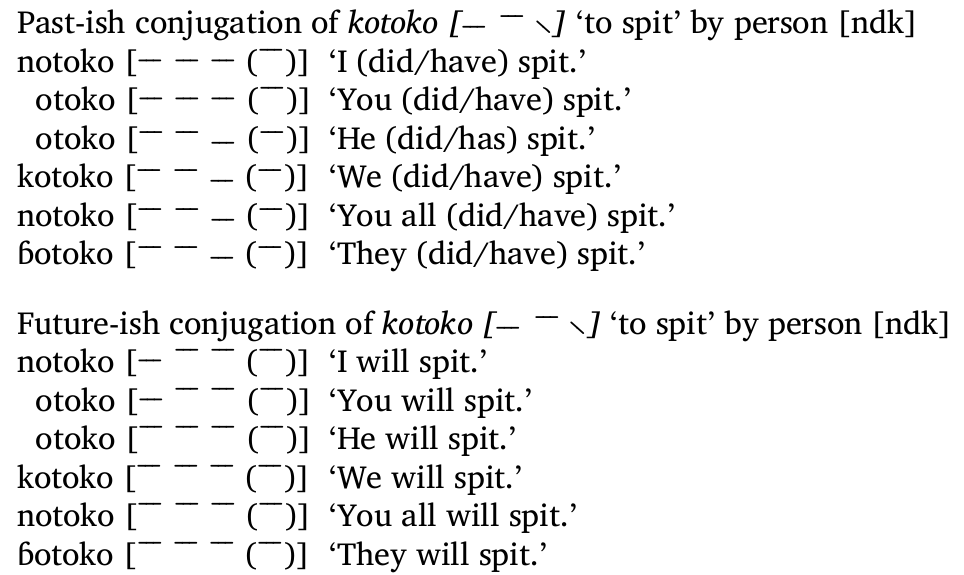
If you have studied another language before, you might recognize this kind of listing of the forms of a verb for each of the people who do the action. In English, this kind of thing is boring:
- I walk
- you walk
- he walks
- we walk
- you all walk
- they walk
The only thing of any interest in the English is the final ‘s’ on ‘he walks‘; everything else is the same on the verb. But that’s not the case in many languages, including the languages I’m working with. For instance, there are lots of differences in forms, and you can correlate the differences in forms with differences in meaning. If you line up the verbs as below, you can separate the part that remains the same from the part that changes. You can also notice that in the meanings on the right, there is a part that remains the same, and a part that changes. This is the case for both conjugations:
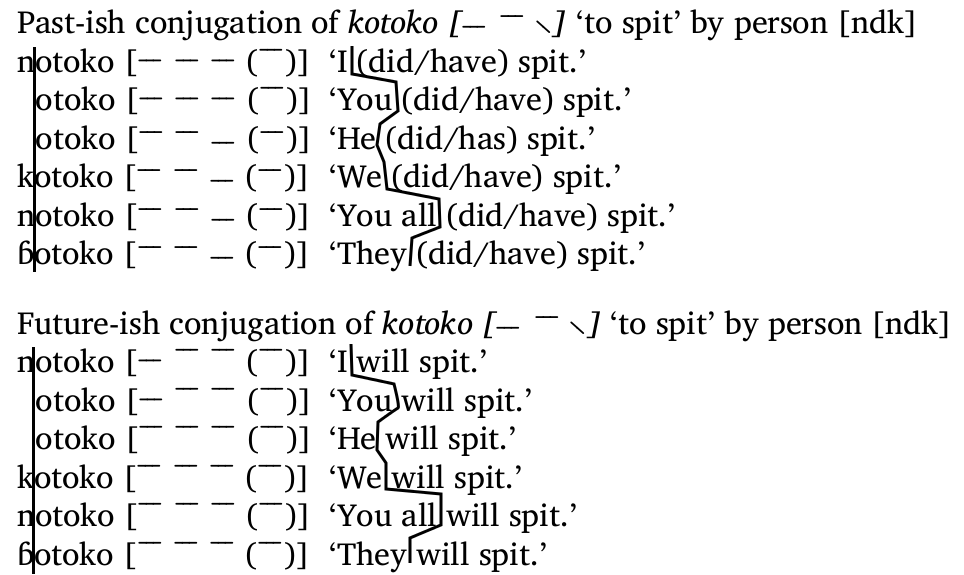
So with a conjugation paradigm like this, we can deduce that for each line in the paradigm, the part of the form that is different is related to the part of the meaning that is different (e.g., k- = “we” and ɓ- = “they”). Likewise, the part of the word forms that stays the same is related to the part of the meaning that stays the same (e.g., otoko = “will spit”).
But, you might ask, this logic gives us otoko = “(did/have) spit” in the first conjugation, but otoko = “will spit” in the second. Which is it? In fact, if you compare each line for each of the two conjugations, you will see that the consonants and vowels are the same for each first line, for each second line, all the way down to the sixth line. So whatever form indicates the difference between “will” and “did/have” is not found in the consonants or vowels. Where is that difference indicated? In the tone. If you compare the second column for each line of the two conjugations, you will see that the lines representing pitch for each word form is not the same between the two conjugations.
A similar problem exists for the prefixes that refer to subjects. That is n- is used for both “I” and “you all”, and the absence of a prefix is used for both “you” and “he”. But looking at this last one first, we can see a difference in the tone: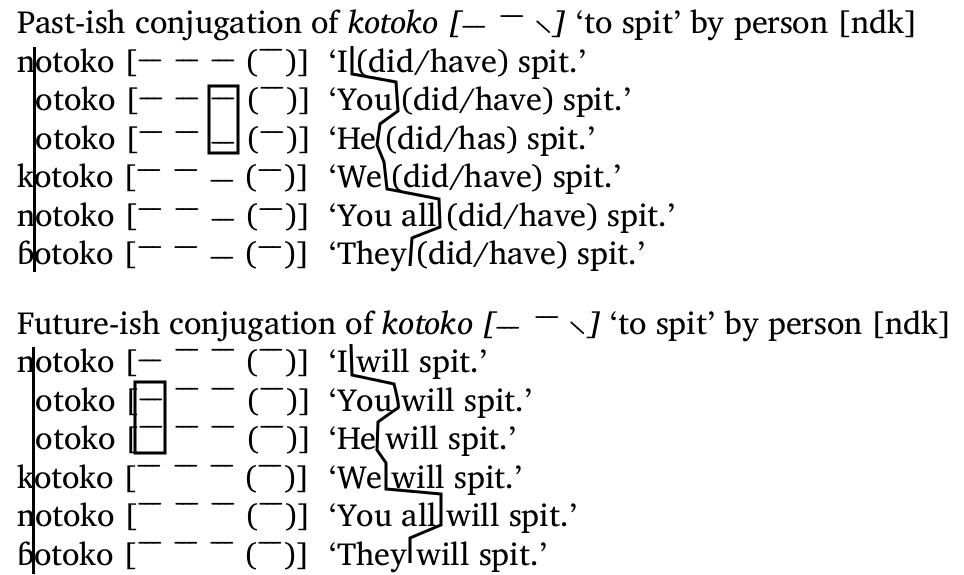
So even though there is no difference in the consonants or vowels to indicate a difference in meaning, there is a difference in tone which does. The same is found for “I” versus “you all”, circled here: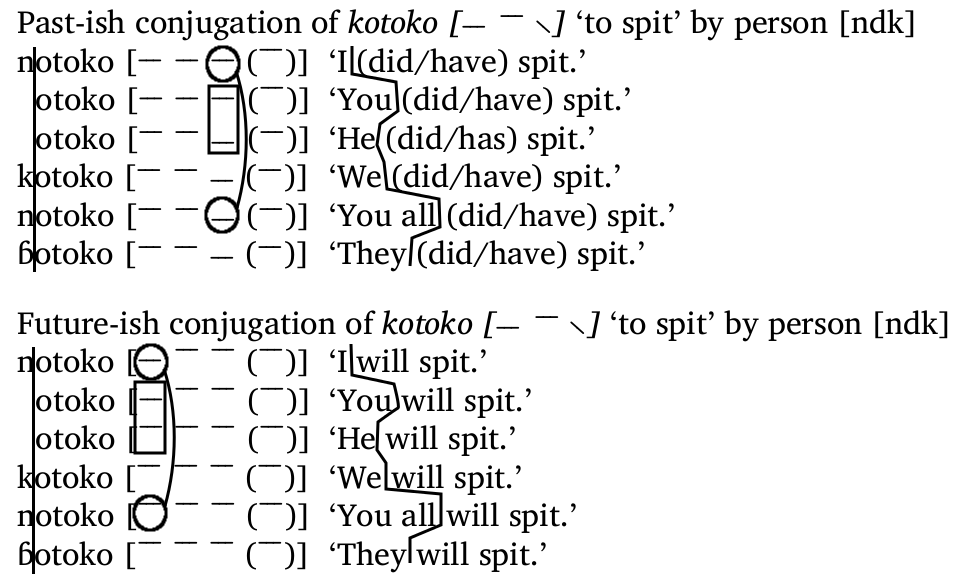
So the bottom line is that for (almost) every difference in meaning, there is a difference in form that indicates that difference. Sometimes that difference is in the consonants or vowels, as we might expect in languages more closely related to English (and even in English, with the -s above), but sometimes that difference is only in the tone.
But the story is a bit more complex than that, since the tone doesn’t do just one thing. We saw above that tone indicates the difference between “will” and “did/have” in these conjugations. But tone also indicates the difference between c, as well as that between “I” and “you all”. That means “you will”, “you did”, “he will”, and “he did” all have the same consonants and vowels, and are only distinguished one from another by the tone. And there’s another quadruplet with “I” and “you all”, and these quadruplets exist for almost every verb in the language: this is a systematic thing.
So with two minimal quadruplets for each verb in the language, it makes sense to ask what is the contribution from each meaningful word part to the tone, and how they come together. For instance, what is the contribution of “you”, as opposed to “he”, on the one hand, and what is the contribution of “will”, as opposed to “did/have”, on the other? And how to these different bits of tonal information combine to form the tone patterns we hear on full words? (Hint: they are a lot harder to chop up than the consonant prefixes above).
Anyway, that’s the essence of what I do, in brief. By looking at the actual pronunciations of words in a system, we can deduce what the contribution of each meaningful word part is, then make hypotheses about how they come together, and test those hypotheses until we come up with a coherent system.
Lifecycle of a Democracy
As the democratic process in Congo seems to be winding down, it’s weird to think that we saw its beginnings.
When we first arrived in Africa, we spend three months in the village house-sitting for a colleague, and learning language and culture. It was during those three months that the election enrollment came through that area. This was the process that established the electorate which voted on the constitutional referendum, giving D. R. Congo its first democratic constitution in 2005.
It was interesting to witness this, since like many Americans voting was old news to me. I understood the apathy in America that leads many people to simply not vote. But this was not so in Congo. As various people we knew enrolled, they proudly showed off their iodine-dipped pinkies and their voter ID cards, like this one:
These cards are the first and only ID owned by many of the Congolese we know, so it was a serious moment of pride. And these cards are still used as basic identification.
In December 2006, I made a two week trip into DRC (We were still living in Nairobi at the time, due to general insecurity in the DRC) to collect extensive wordlists in four languages. One of those turned out to be two separate languages, so we had data from five languages in the end. These are the same languages we eventually did alphabet charts with, and whose tone systems I’m now analyzing for my dissertation. On this, my first trip to Nya-nya, I stayed with the pastor of one of our local church partners, who had decorated his house with ballot receipts (from the election voting in Joseph Kabila as president for the first time):
On the way out of the country, I stopped back in Bunia, and got to see the inauguration on this TV, in this living room:
The elections in 2011 seemed to come and go with little fanfare; I recall reports of small protests, and some claims of voter fraud, including a report by the Carter Center, which didn’t (seem to, IMHO) go so far as to say that the election was illegitimate, while identifying a number of issues that caused concern.
Since then, we returned to the US and started a doctoral program. I returned to Nya-nya in 2014, then again this year, to collect data specifically for my dissertation, and to help the people on their path toward literacy. In 2014, we took the data that we collected together in 2006, did basic phonological analyses and created alphabet charts. This year we looked at how verb conjugation affects tone melodies, since tone is important in these languages, so they will likely need some solution for writing it. They seem to be on good footing toward managing their own literacy and Bible translation programs, which we want to continue to support and encourage however we can.
And now, as I’m hoping to make one more trip next year, and wrap up this doctorate in the next couple years, we see news that that process started with a new constitution back in 2005 seems to be failing. The Elections commission has not updated the electoral rolls, due (at least) to funding and disorganization. They didn’t want to hold elections on time, but with five year old election rolls (in which time lots of people die and/or become 18+). The president and the main opposition have not been talking for some time, and the President seems committed to remain in power until elections are held (end of 2018, two years late). This has been described as a coup d’état, but minimally the constitution is not being followed.
But in the mean time, work on minority Congolese languages continues. Just last week, I made a great advance in my analysis of a rather complex aspect of the Ndaka verb tone system. I hope that this will help understand Ndaka’s neighbors, so that steps toward a Bible that is used will be multiplied in a number of local communities. And our colleagues working locally continue to work with these groups to help them take more ownership of the Bible translation movement for their language.
So I take comfort in the fact that despite the political chaos, God is at work. As He said to Daniel:
Many shall purify themselves and make themselves white and be refined, but the wicked shall act wickedly. And none of the wicked shall understand, but those who are wise shall understand. (Daniel 12:10 ESV)
And sometimes he works in, through, and/or despite larger turmoil:
You said, ‘Woe is me! For the LORD has added sorrow to my pain. I am weary with my groaning, and I find no rest.’ Thus shall you say to him, Thus says the LORD: Behold, what I have built I am breaking down, and what I have planted I am plucking up—that is, the whole land. And do you seek great things for yourself? Seek them not, for behold, I am bringing disaster upon all flesh, declares the LORD. But I will give you your life as a prize of war in all places to which you may go. (Jeremiah 45:3-5 ESV)
So I will continue to pray that whatever chaos the Congolese people have to go through in the next months and years, that God would have His way, and that He would be glorified. That Christ’s Church would be built up in numbers and maturity, and that it would stand out as a beacon of hope and sanctuary in Congolese society. Because despite whatever political failures there may be, our ministry vision remains valid:
After this I looked, and behold, a great multitude that no one could number, from every nation, from all tribes and peoples and languages, standing before the throne and before the Lamb, clothed in white robes, with palm branches in their hands, and crying out with a loud voice, “Salvation belongs to our God who sits on the throne, and to the Lamb!” (Revelation 7:9-10 ESV)
Please join us in prayer, that this vision would be accomplished, even in the DRC.
Missionary Linguist
It hasn’t always been easy describing what I do to a broad audience, but for some time now on immigration forms requiring a short answer, I indicate my profession as “Missionary Linguist”. I heard a chapel talk at the first SIL summer training I went to, in Eugene, OR, on doing good social science as a Christian. Tom Payne talked about how academics often look down on missionaries, and vice versa. But the dichotomy isn’t valid, he said. And since then, as I think about what I do from time to time, I consider that one of my greater joys is to do both serious academic work and serious mission work — and that these are not exclusive. In fact, I think they can be very much in support of one another.
This is strikingly clear in D.R.Congo, where it could be said that most of the functioning social bodies are religious. If you are unwilling or unable to work with a church, you will be hard pressed to find people to work with, and you will be on your own in terms of your daily life logistics, like how you will eat, sleep, and get around. But we have the joy of working with a number of church partners, and of working in a way that is clearly for their good, all while doing good academic work.
The above picture is from the covered area where we did most of our work this summer. We started out each day with a meditation on a portion of scripture. I did this in 2014, too, but I wasn’t sure how much they actually liked it, and how much they were just putting on a good face. So this time I asked directly, and they said they like it, for a couple reasons: first, it makes it clear to everyone that this is church work, and that it is worthy of their support; second, it provides spiritual food for the workshop participants. Wow. I hadn’t anticipated that a minimal (30 mins) daily commitment to share with them from the Bible would impact them so much.
So I committed to not sell them short, and we walked through the first half of Romans during our three weeks together, ending in the closing ceremonies with Romans 6:23 – For the wages of sin is death, but the free gift of God is eternal life in Christ Jesus our Lord. I knew that there were a couple Muslims in the group, and they didn’t always show up for this part, which was OK with me. Because I got to talk through some really good stuff, and I could see that those that came got it. For instance, having talked through the pervasiveness of sin in chapters 1-3, we talked about 3:21-22 – But now the righteousness of God has been manifested apart from the law, although the Law and the Prophets bear witness to it— the righteousness of God through faith in Jesus Christ for all who believe – and the theological earthquake these verses caused in the protestant reformation. I continued to feel the freedom to simply read and explain the scripture, and enjoyed again seeing the logic of Romans unfold – They sin, we sin, we all sin, we all need Christ… Then some time later I noticed that a large chunk of my audience was Roman Catholic. 🙂 But that was not a source of division. We want our work to benefit the whole community, including everyone who identifies as Christian. We want everyone involved to be transformed by the Word of God in their language.
But the fact that we’re serious about getting the Bible to the grassroots of the church, and in a way that can reach even those outside of the church, doesn’t mean we aren’t also doing good academic work — which we are. Whenever I start working with people who are used to manual labor, I explain that our work doesn’t use a hoe, but it is work nonetheless. And there always comes a time where people are grabbing their heads and saying “wow, this hurts!” We had plenty of those moments this time around, as people grappled with the implications of what we were discovering about their language – but more about that (including the octuplets) in another post, I think.
One other point relevant to this topic is the need to make community development truly community based, and my work as a missionary linguist facilitates that. Because I depend on the church to do my academic work, and because my academic work is for the benefit of the church, the church has a strong share in finding out what we’re doing. They have a right to accountability, which goes hand in hand with the fact that we want to share what we’ve learned.
I made some posters from the pages of the vowel booklet we made in 2014, which we then modified to add tone marks to. These became a medium for us to share our insights. Here is Simon sharing from these posters, after service at the church we attended our second Sunday in the area:
This is another great aspect of combining my various responsibilities – most people agree that we should be training and mentoring future leaders, but we don’t necessarily make it happen, if we’re able to do our work without it. I could have done this presentation myself, but it just made so much more sense in this context to have Simon do it. His father is pastor at this church, and him presenting gave them a chance to have a few back-and-forths in Ndaka, which would (obviously) have been beyond me.
Not only did we get the word out, but we also got to practice doing it. The next Sunday, we were at another church, after which we gave a presentation to them:
And then a few days later, in our closing ceremony, we gave yet another presentation, this time in the church that was hosting the workshop:
So the bottom line here, for me, is that we got to build up the church through teaching, mentorship, and grassroots showing that we care about their language (which is a bigger deal than you might think) –while at the same time we had unparalleled access to speakers of the language, that were ready and willing to bust a few brain cells figuring out how tone works in their verbs. So I’m proud to say that I’m a missionary linguist — doing what God made me for, to His glory.
Tickets!
After a couple days of struggle, and finally giving up, Kim made one more call. God parted the clouds, and let the rainbows through. The tickets we got today are a bit more expensive than the ones we originally had, but they’re actually better, in terms of the connections in the Entebbe airport. Praise God!
So Joel and I fly out this Wednesday, and return in just over a month. If you want to pray more specifically for this trip, you can sign up for updates here.
Visas!
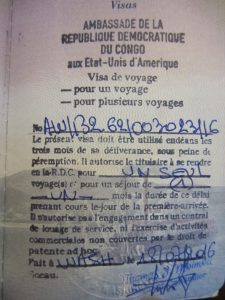 At long last (after 70 days, 10 weeks, or 51 work days, as you like) we have our passports back! And they contain valid visas!
At long last (after 70 days, 10 weeks, or 51 work days, as you like) we have our passports back! And they contain valid visas!
So now that we have official permission to enter Congo, we need to rebook tickets to Uganda, as well as organize logistics to get into Congo, as well as on to Nia-nia. Please pray for us as we figure out our options at this point, and make final decisions about our new schedule hopefully in the next few days.
One major issue is the fact that the cost of tickets is much higher now than in a month or so (as would be expected of getting tickets at short notice). But in a month, Joel would not be able to come without missing school. So we’ll need to figure out what kind of balance we can achieve between a raised ticket cost, and the other goals for this trip, including when other people are available to help. Please pray that we’d get this figured out today, or at least in the next couple days.
Mid July Update — Learning to Live with Plan B
It’s been a couple weeks since I’ve written, so I thought I should post something about how things are going. Not because I have something new to say; things are still pretty much where we last left them, with our passports in Washington, D.C., and us unable to do anything until they come back, and us not sure when they will come back, or whether they will have visas in them when they do.
We have heard from a number of sources that the whole system is slowed down due to changes in how Congolese visas are approved, and that this isn’t political or personal. So it may be that we do get visas in advance of the constitutionally required elections in DRC this November –regarding which some have expressed doubts that they will happen on time.
So in the mean time, I’m following advice from our support team, and moving forward as I can with my doctoral work. I had hoped to make two more trips to DRC before I finish, but that may not be ultimately possible. These last couple weeks, I’ve been organizing material that I’ve written over the last couple years, but had not compiled in one place, as well as catching up on comments on some of that material that I had not yet incorporated.
I’ve also organized some of the data that I haven’t finished analyzing, and I will continue to get what I can out of that. It may well be that I can make tolerable doctoral work out of it, though that was definitely not plan A. But it seems like this is maybe something God is working on in me; making me willing to accept a lower standard of excellence than I know I’m capable of. As one of the founders of the modern Bible Translation movement said, “There are some things that are worth doing, that are not worth doing well.” (or something like that).
For a perfectionist with anxiety issues, this is a hard pill to swallow. But perhaps that’s why it seems to be next on God’s list. Anyway, I’ve seen a number of times in this program, where I have been forced to simply submit what I consider B level work, and move on. Not that I’ve ever actually gotten a B (there is grade inflation, after all), but I have had to continually face my own lack of satisfaction with my work. And I think it is true, that some things just need to be done, and spending a lot of time and energy doing them really well is a waste. For instance, today I cleared the back yard of dog poo. I think there’s a basic level of time and energy that it’s reasonable to spend on that, and it’s not more than an hour (unless maybe you’ve really let it go…).
Likewise, a paper that is necessary to pass a class, but which will never be published, is not one that merits getting it just right. Even some papers, I can tell before finishing them, that I’m going to need to move stuff around (and add it to other work, for instance) before it would make sense to a broader audience. Time and energy spend word-smithing those papers is a waste. Once the overall structure is in place, and the analysis finished, then finer touches make sense.
In any case, I feel the need to plan for the possibility that I may not be able to enter the DRC in the next couple years, which would mean either waiting to finish the doctorate, or finishing it with the data that I have already. No one has advised the first, and several people have advised what amounts to the second (“Get this done; don’t delay”). While I’m working on that, if Congo opens up for me, I’ll make a trip, and see what happens. But in the mean time, I’ll execute the plan that I don’t desire, but which seems to be the one God is offering me.
On Hold
We heard this afternoon from a friend who was able to visit the Embassy in Washington D.C., to ask in person what was happening with our visa application. Apparently the embassy workers are waiting on approval from D.R.Congo, and there is no indication of when or if that may come. So there is nothing they can do about it for now.
So this looks more like a larger diplomatic issue than a problem with our specific application. Still, let’s be praying for God’s timing and Glory to be evident, as we wait on the outcome of this application.
In the mean time, I have other work to do (including processing data left over from my last trip), so the time is not lost, just not as I had planned and hoped.

